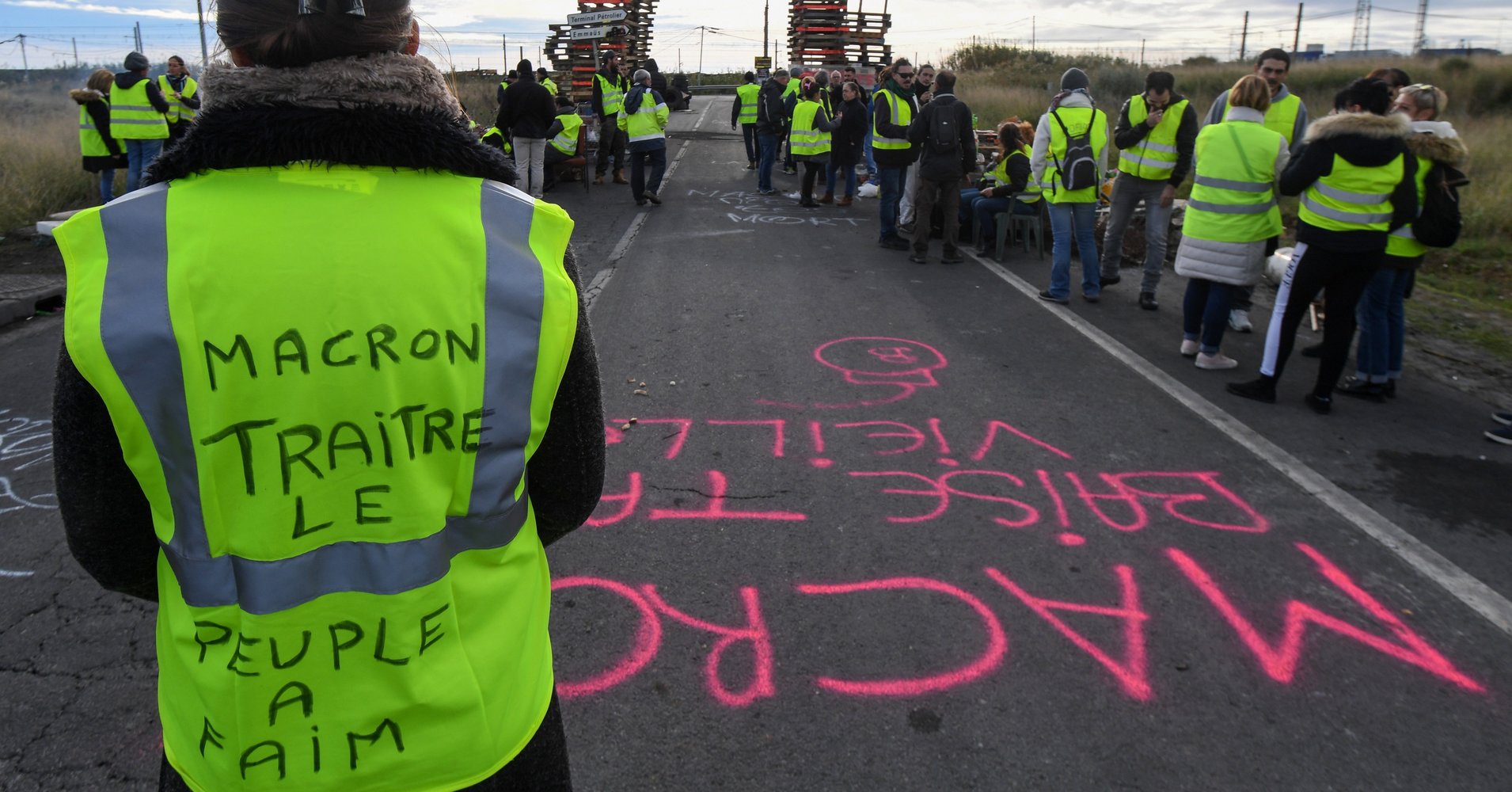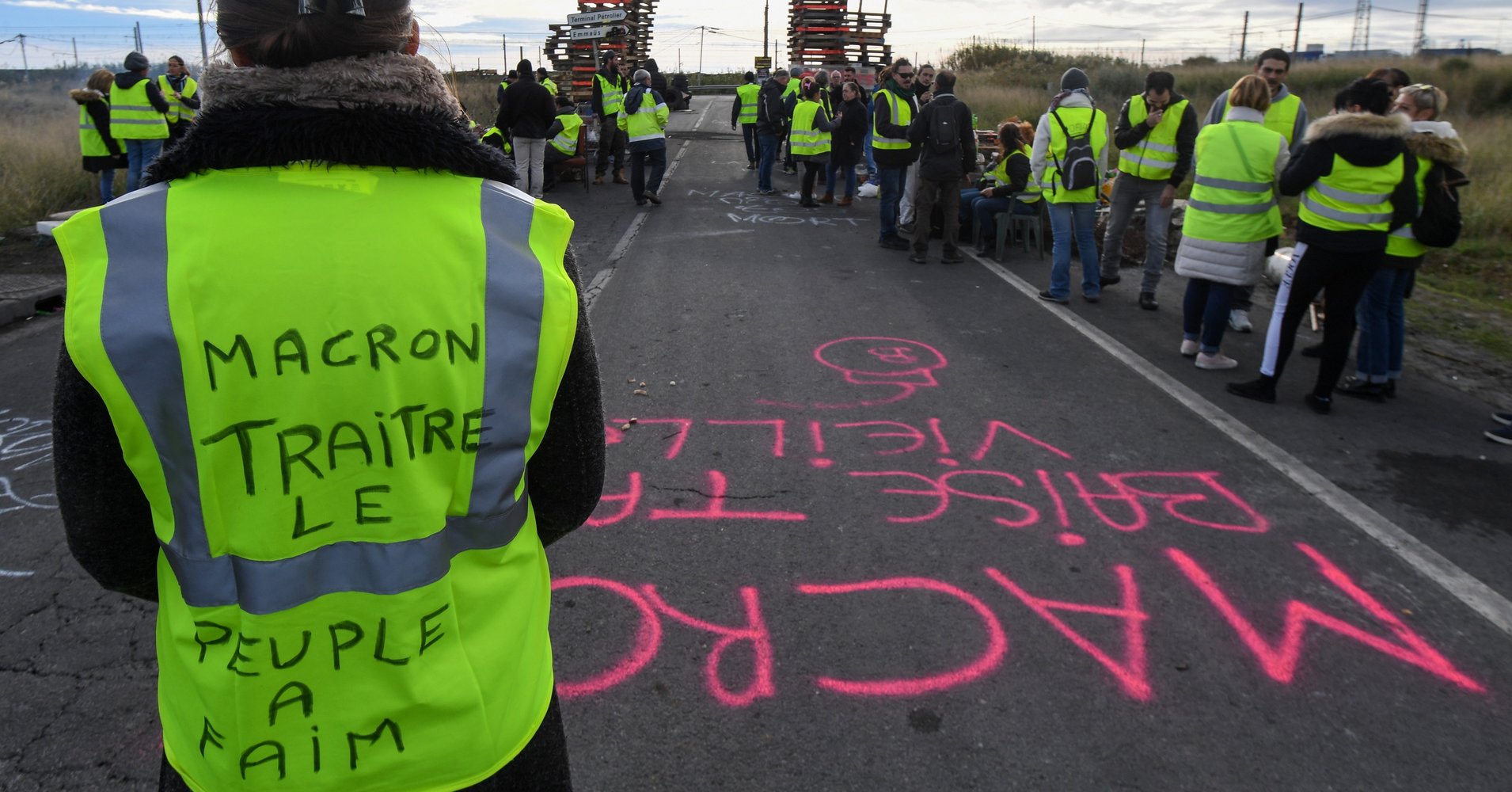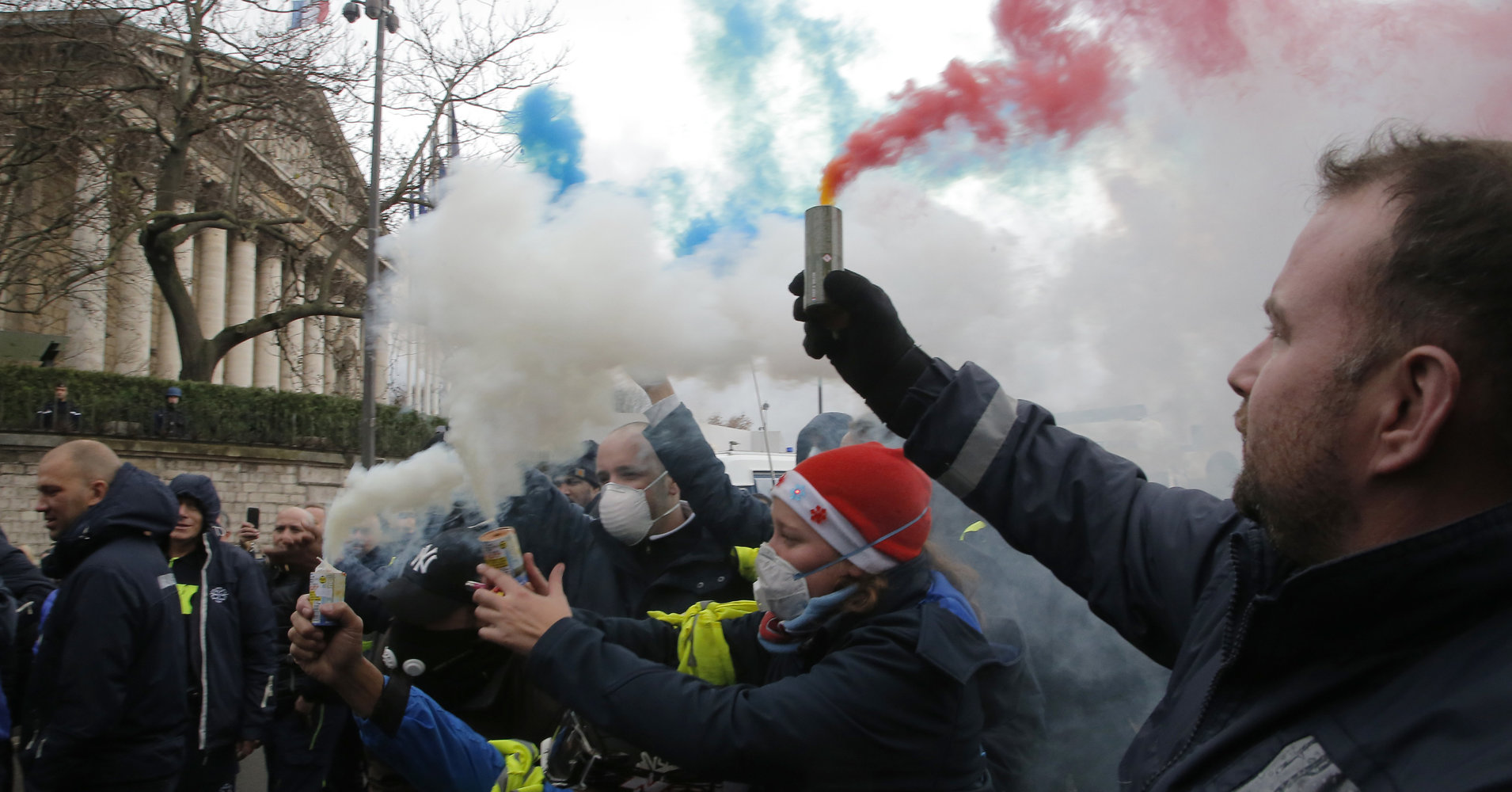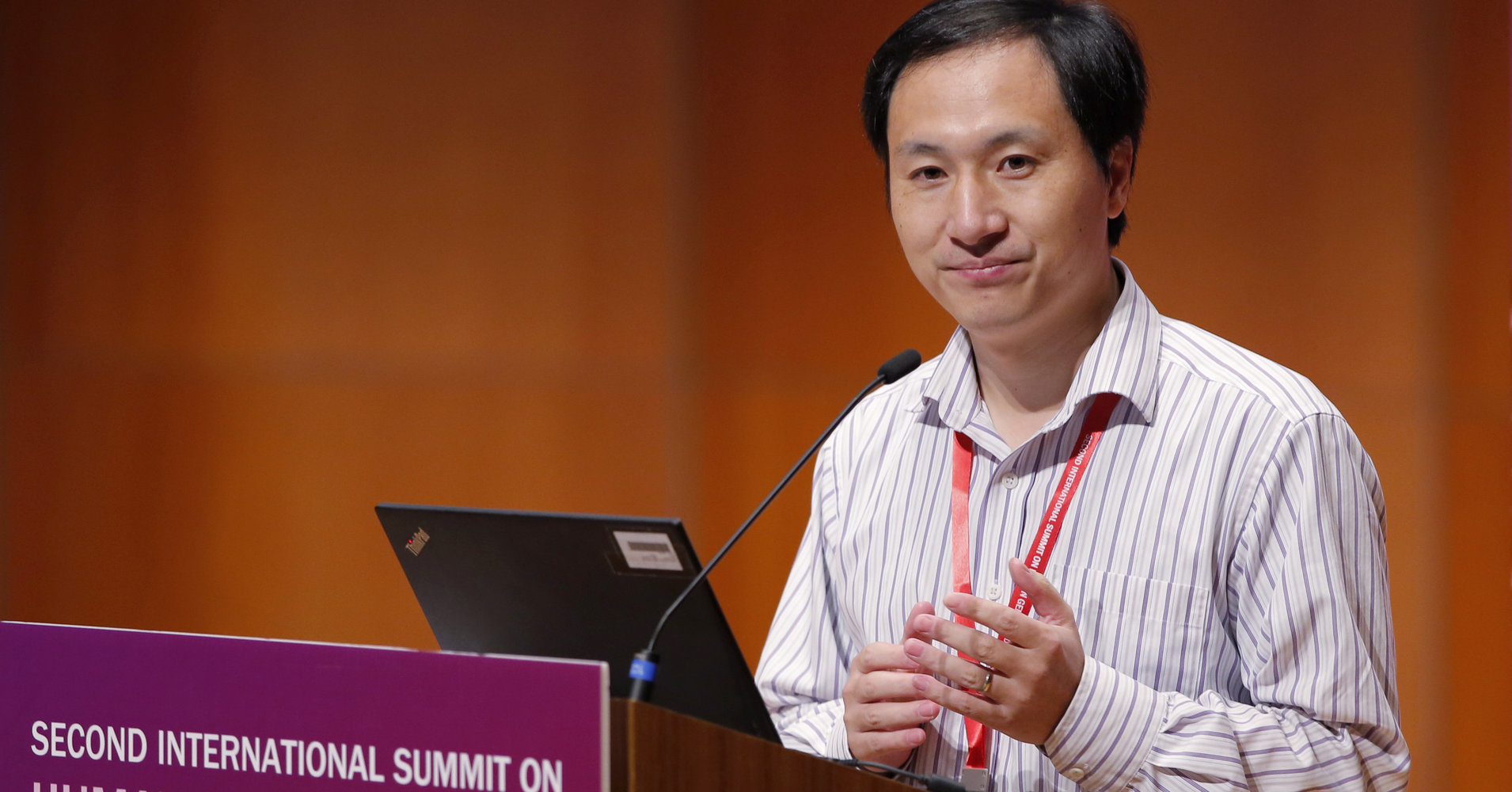

PARIS (Reuters) – The French government is preparing to suspend fuel tax increases after weeks of sometimes violent protests, a government source said on Tuesday, in what would mark a major U-turn by President Emmanuel Macron after 18 months in office.
Prime Minister Edouard Philippe was due to announce the suspension later on Tuesday, the source said, although it was unclear whether he would announce a time-limited “moratorium” or abandon the next carbon-tax increase entirely.
The so-called “yellow vest” movement, which started on Nov. 17 as a social-media-organized protest group named for the high-visibility jackets all motorists in France must have in their cars, has focused on denouncing a squeeze on household spending brought about by Macron’s taxes on fuel.
The president says the taxes are needed to combat climate change. Ditching them could be a major embarrassment as governments meet in Poland to try to pin down measures to avert the most damaging consequences of global warming.
However, over the past three weeks the protests have evolved into a wider anti-Macron uprising, with many criticizing the president for pursuing policies they say favor the rich and do nothing to help the working poor.
Despite mostly peaceful nationwide demonstrations, the protests have turned violent on successive weekends in Paris. On Saturday, the Arc de Triomphe national monument was defaced and avenues off the Champs Elysees were damaged. Cars, buildings and some cafes were torched.
The unrest is estimated to have cost the economy millions, with large-scale disruption to retailers, wholesalers, the restaurant and hotel trades. In some areas, manufacturing has been hit in the run-up to Christmas.
Senior members of Macron’s La Republique En Marche party said the government could also increase the minimum wage from January along with other measures to deliver a quick boost low-income households, although the details remained unclear.
CHANGE FRANCE?
Macron, a 40-year-old former investment banker and economy minister, came to office in mid-2017 promising to overhaul the French economy, revitalize growth and draw foreign investment by making the nation a more attractive place to do business.
In short order he made changes to the labor code to make hiring and firing easier, he took on the rail unions by forcing through changes to the national rail company, and he cut wealth taxes in a bid to stimulate investment.
However, in the process he earned the tag “president of the rich” for seeming to do more to court big business and ease the tax burden on the wealthy. Discontent has steadily risen among blue-collar workers and the middle-class struggling to make ends meet.
The government’s decision to push ahead with an increase in fuel taxes from January, part of a longer-term effort to discourage fossil fuel use, angered people in rural or outer urban areas who use their cars more.
It was not immediately clear if suspending the tax rise would be enough to placate the “yellow vests” or head off a repeat of the violence that erupted in Paris on Saturday, which officials said was driven by extreme groups on the far-left and far-right, such as the Black bloc and anarchist factions.
The U-turn could also undermine Macron’s credentials as a “new style” president willing to shake up France.
He has said repeatedly that he will not back down but with his ratings barely above 20 percent and with other major changes in the pipeline, including pensions reform, party officials say he needs to find a way of cooling the turbulent atmosphere.
He is also aware that the anti-establishment fervor spurring the yellow vests on could spell trouble in next year’s European election.
Macron has described that election as a battle between progressives like himself and populists on the far-right and the far-left, who have made recent gains in the polls on the back of the popular discontent.
(Reporting by Simon Carraud, Marine Pennetier, Elizabeth Pineau and Richard Lough; Editing by Jon Boyle)






